Entertainment
DQ Reviving the Glory: The 1963 Studebaker Avanti
In the world of automobiles, there are certain models that leave an indelible mark on History. They aren’t just vehicles; they are legends. The 1963 Studebaker Avanti is one such legend. With its avant-garde design, innovative engineering, and fascinating story, the Avanti is a car that deserves to be remembered and celebrated. In this article, we will take a deep dive into the History, design, engineering, and lasting impact of the 1963 Studebaker Avanti.
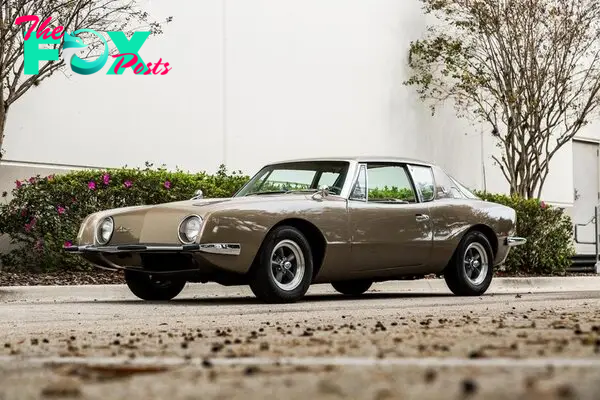
A Brief Studebaker History
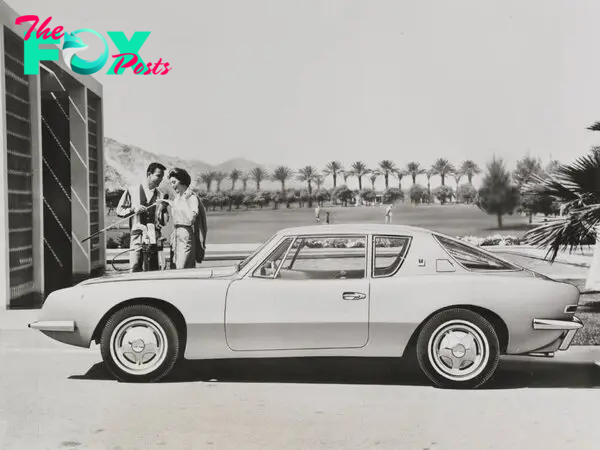
To truly appreciate the Avanti, we must first understand the context in which it was born. Studebaker, a venerable American automobile manufacturer, had a long and storied History by the time the Avanti came into existence.
Founded in 1852, Studebaker initially manufactured wagons and carriages, establishing a reputation for quality and innovation. In 1902, they entered the automobile business, becoming one of the earliest automobile manufacturers in the United States. Studebaker’s cars gained popularity and recognition, especially during the early 20th century.
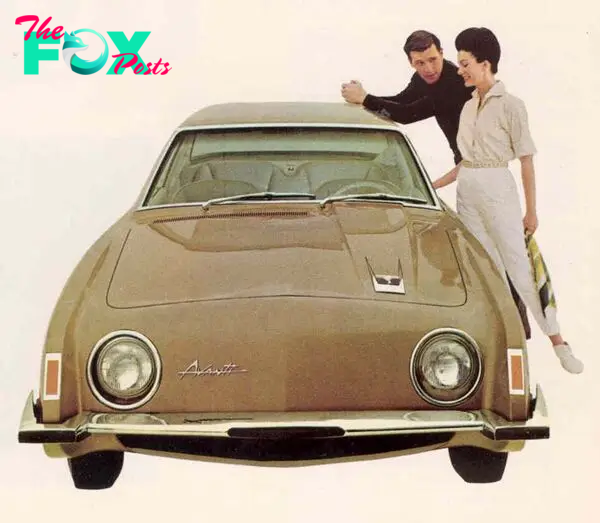
However, by the late 1950s and early 1960s, Studebaker was facing stiff competition from the Big Three automakers: General Motors, Ford, and Chrysler. They needed a game-changer, something that would not only revive their image but also put them at the forefront of automotive innovation.
Raymond Loewy and the Avanti Design
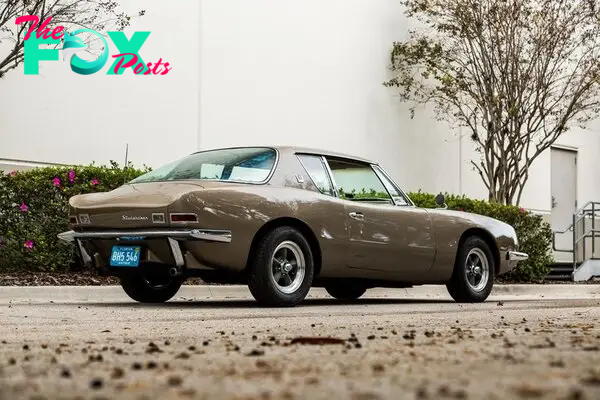
The pivotal moment in Studebaker’s History came with the collaboration of Raymond Loewy, a world-renowned industrial designer, and the Avanti project. Loewy had a long History of working with Studebaker and was known for his iNFLuential designs that combined form and function seamlessly.
The Avanti, which means “forward” in Italian, was a departure from the conventional designs of the time. It was, quite literally, ahead of its time. Raymond Loewy’s team designed a car that looked like it was from the future. Sleek, aerodynamic, and devoid of unnecessary ornamentation, the Avanti was a visual masterpiece.
One of its most striking features was its fiberglass body, a relatively new concept in car manufacturing at the time. This material allowed for the Avanti’s unique, streamlined shape and contributed to its lightweight design.
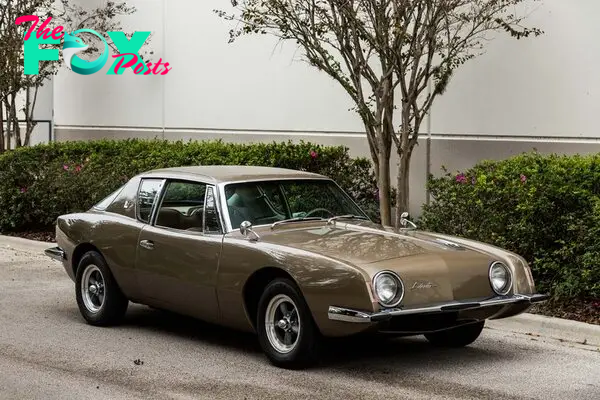
The front grille, hidden headlights, and the absence of a traditional grille opening set the Avanti apart from anything else on the road. Its curved, asymmetrical back window was another distinctive feature that added to its futuristic appearance.
The Avanti was not just a visual spectacle; it was also a technical marvel. Underneath its stylish exterior, it featured a state-of-the-art chassis and suspension system. The frame was made of heavy-duty steel, and the suspension utilized front and rear anti-roll bars, providing a smooth and stable ride.
Performance and Engineering
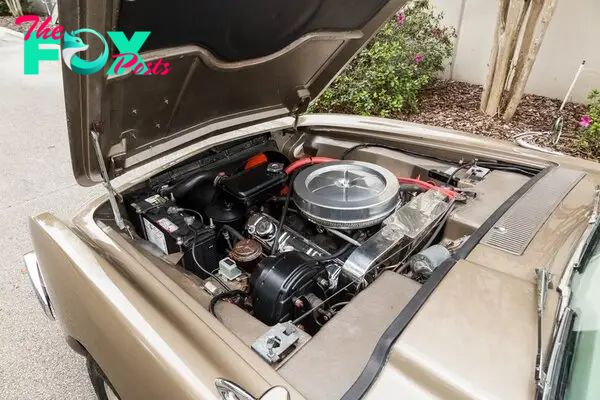
The 1963 Studebaker Avanti was available with two engine options: the R1 and the R2. The R1 was powered by a 289 cubic inch V8 engine, producing 240 horsepower. The R2, on the other hand, was equipped with a supercharged version of the same engine, producing a robust 289 horsepower.
The Avanti was designed with performance in mind, and it didn’t disappoint. In fact, the Avanti R2 was one of the fastest production cars of its time, capable of accelerating from 0 to 60 miles per hour in just 6.3 seconds, an impressive feat in the early 1960s.
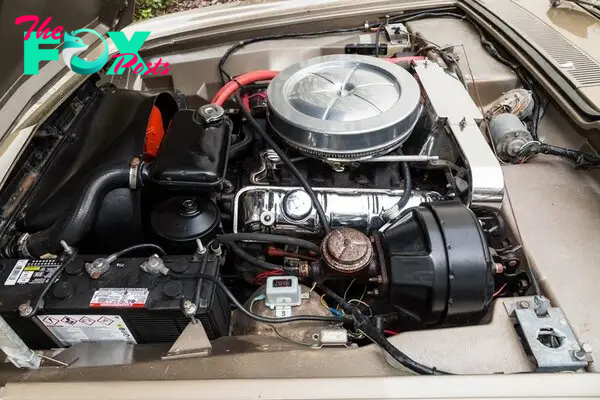
One of the most innovative engineering features of the Avanti was its front disc brakes, a rarity in American cars at the time. These brakes provided superior stopping power and enhanced safety, making the Avanti not only fast but also safe to drive.
The Avanti’s Interior
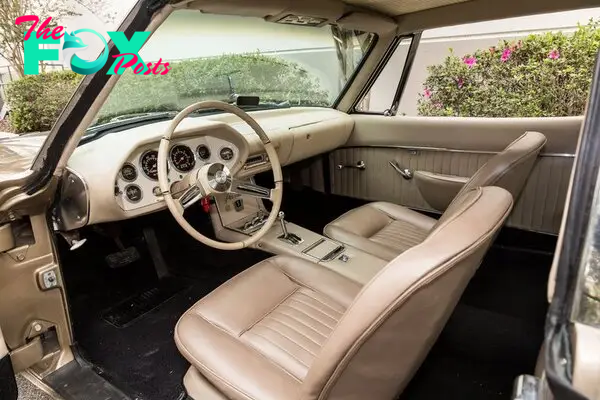
While the Avanti’s exterior was a futuristic marvel, its interior was equally impressive. The cockpit-like cabin was designed for driver comfort and convenience. It featured a unique square steering wheel, bucket seats, and a dashboard layout that was ahead of its time.
The Avanti’s cabin also had some luxurious touches, including high-quality materials, plush carpeting, and ample sound insulation to provide a quiet and comfortable ride. This combination of performance and luxury was part of what made the Avanti so appealing to buyers.
Production and Marketing
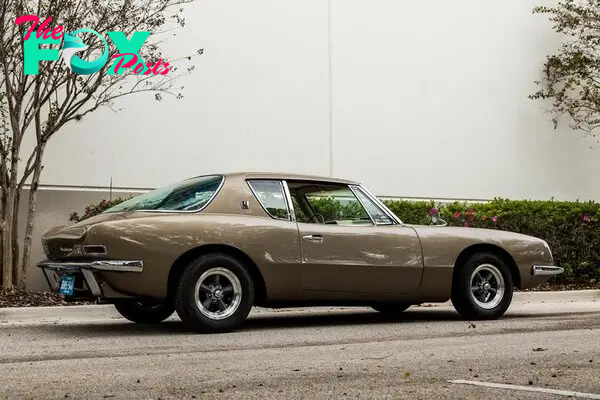
The Studebaker Avanti was introduced to the public on April 26, 1962. It generated tremendous excitement and anticipation among automotive enthusiasts. Studebaker marketed the Avanti as “America’s Only 4-Passenger High-Performance Personal Car,” emphasizing its unique combination of power, style, and comfort.
Production of the Avanti began in earnest, and Studebaker aimed to build 20,000 units in the first year. However, they faced production challenges and quality control issues that hindered their ability to meet this ambitious goal. The Avanti was assembled at Studebaker’s factory in South Bend, Indiana, and the production process was not without its difficulties.
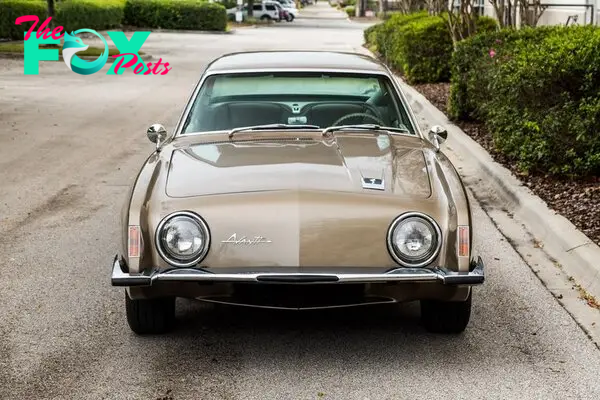
Despite these challenges, the Avanti garnered positive reviews from the automotive press. It received accolades for its design, performance, and innovative features. However, Studebaker’s financial troubles and declining sales of other models cast a shadow over the Avanti’s prospects.
The Demise of Studebaker and the Avanti’s Legacy
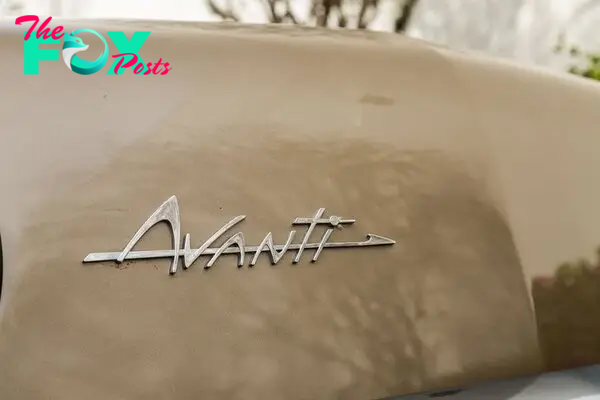
Tragically, the 1963 Studebaker Avanti’s production was short-lived due to the financial struggles of the parent company. Studebaker announced its decision to cease production of all passenger cars in December 1963, and the Avanti, along with the rest of the Studebaker lineup, was discontinued.
While the Avanti’s production run was relatively brief, its impact endured. The Avanti was a groundbreaking car that pushed the boundaries of automotive design and engineering. It served as a testament to what Studebaker could achieve when it dared to be bold and innovative.
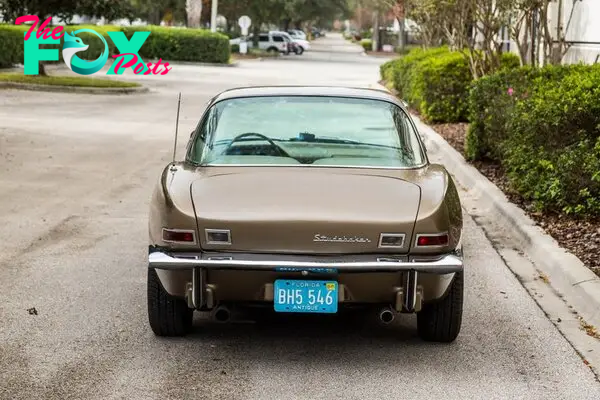
Following Studebaker’s closure, the Avanti’s story took a fascinating turn. A group of enthusiasts and former Studebaker dealers purchased the rights to the Avanti name and design. They continued to produce the Avanti independently, with various updates and modifications over the years. The Avanti II, as it became known, remained in production for several decades, carrying the torch of the original Avanti’s legacy.
Collectibility and Restoration
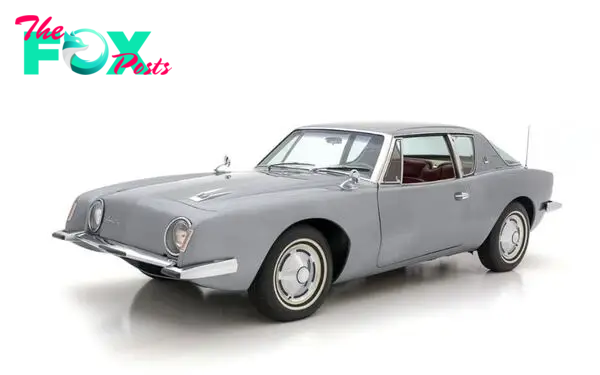
Today, the 1963 Studebaker Avanti is a highly sought-after collector’s car. Its rarity and historical significance make it a prized addition to any classic car collection. Restoring an Avanti to its former glory is a labor of love for many enthusiasts, as it involves sourcing original parts and paying meticulous attention to detail.
The Avanti Owners Association International (AOAI) plays a crucial role in preserving the History and heritage of the Avanti. The AOAI brings together Avanti enthusiasts, provides resources for restoration, and hosts events where owners can showcase their meticulously maintained vehicles.
Conclusion
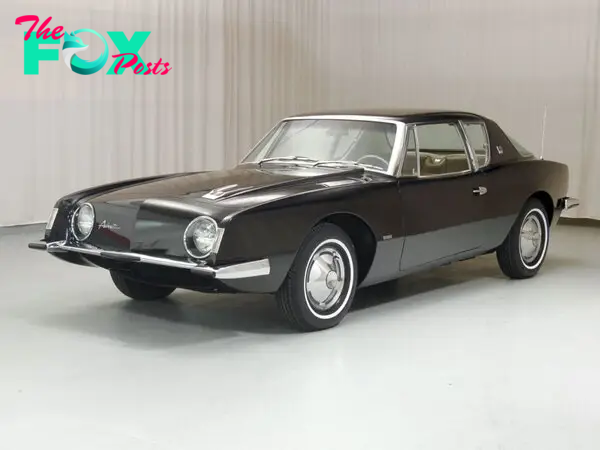
The 1963 Studebaker Avanti is more than just a car; it’s a symbol of innovation, design excellence, and the enduring spirit of American automotive ingenuity. Although its production was relatively short-lived, the Avanti left an indelible mark on the automotive world.
Today, the Avanti is a coveted collector’s item, a testament to Studebaker’s ambition, and a reminder that the pursuit of excellence in design and engineering can create a timeless legacy. The Avanti’s enduring appeal serves as a fitting tribute to a car that was truly ahead of its time, and it continues to captivate the hearts of automotive enthusiasts around the world.
-

 Entertainment5m ago
Entertainment5m agoAmerica On CoffeeWe’re simply inviting you to take a timeout into the rhythmic ambiance of our breakfast, brunch and/or espresso picks. We’re comfortable everytime you cease by.Take pleasure in And, Chill out …
-

 Entertainment20m ago
Entertainment20m agoHow ‘Interior Chinatown’ Satirises Asians in Hollywood with Witty Social Commentary
-

 Entertainment5h ago
Entertainment5h agoPHOTO GALLERY: The Seaside Boys – OLG Stage at Fallsview On line casino – Niagara Falls, Ontario – November 16, 2024
-

 Entertainment10h ago
Entertainment10h agoAmerica On CoffeeWe’re simply inviting you to take a timeout into the rhythmic ambiance of our breakfast, brunch and/or espresso picks. We’re completely happy everytime you cease by.“All the time Keep in mind Us This Method” Woman Gaga
-

 Entertainment11h ago
Entertainment11h agoHow to See Ava, Chiang Mai Night Safari’s Golden Tiger
-

 Entertainment11h ago
Entertainment11h agoDictionary.com Names ‘Demure’ as Its Word of the Year for 2024
-

 Entertainment13h ago
Entertainment13h agoAnna Delvey Reunites With Ezra Sosa and Flips Him Off Ahead of ‘Dancing With the Stars’ Finale Return
-

 Entertainment16h ago
Entertainment16h agoMethods to Recharge as an Actor



























